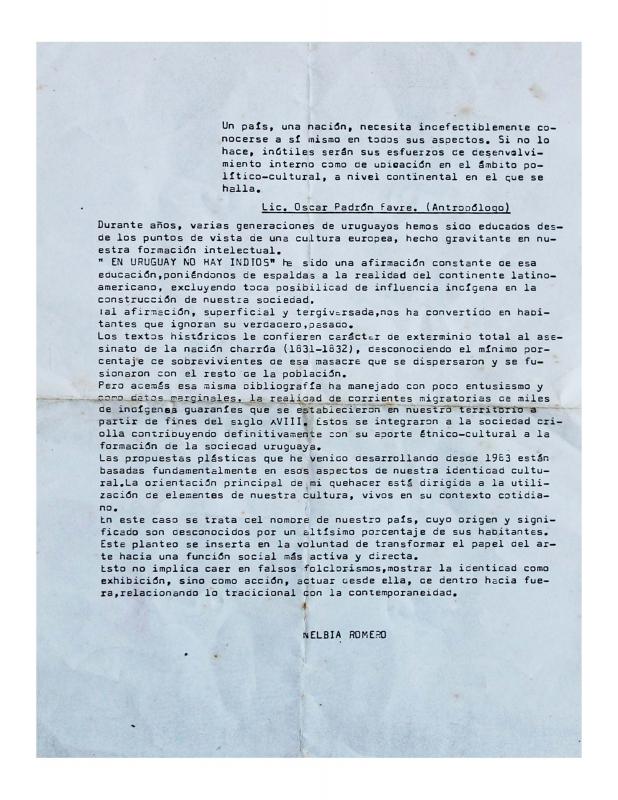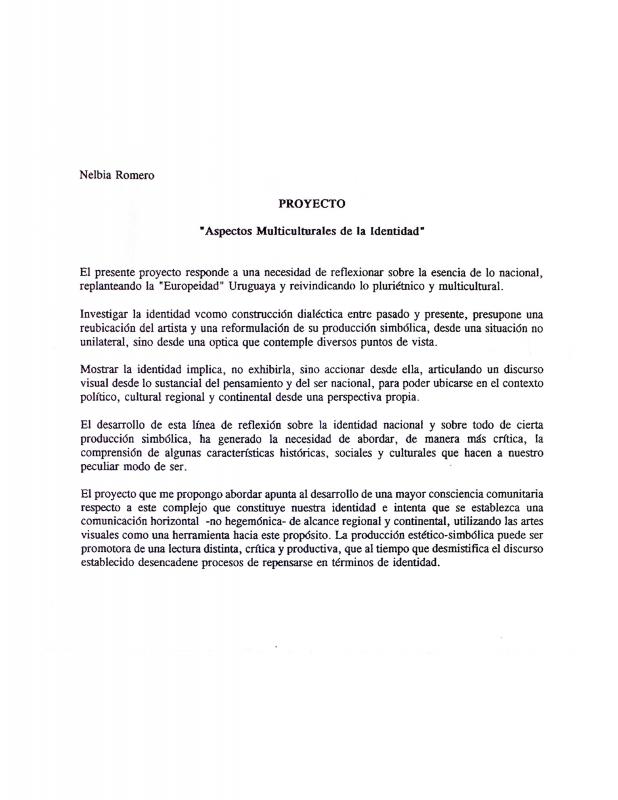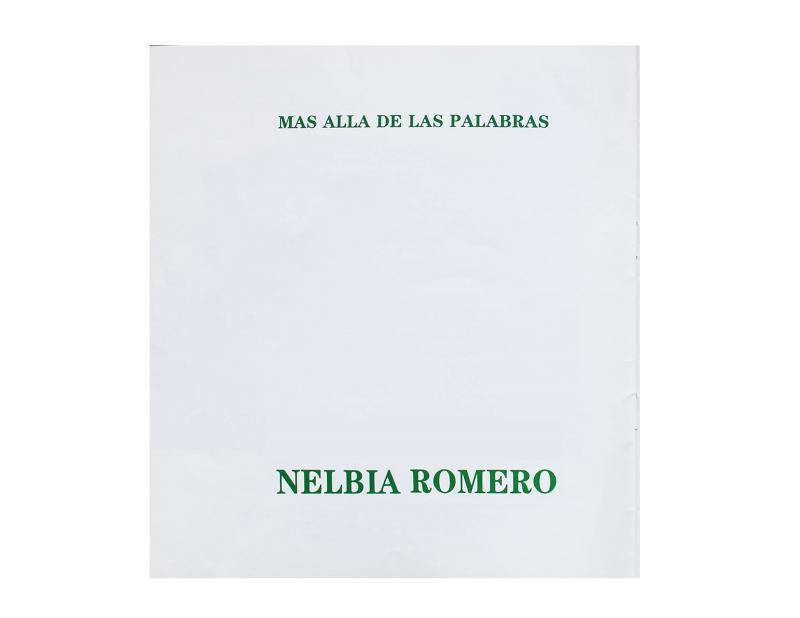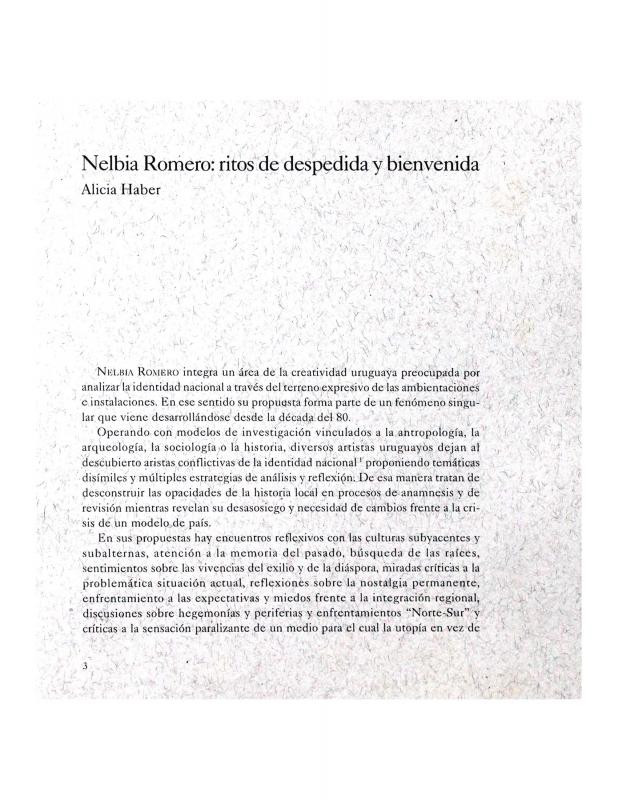This anonymous document, made in 1983 in a retractable format, presents the project of Nelbia Romero (b. 1938), that was carried out at the Galería del Notariado, one of the new exhibition spaces that was then under the direction of the writer and cultural activist Nancy Bacelo (1931– 2007). The exhibition took place during the last years of the military dictatorship in Uruguay (1973–84), moments in which (between political advances and retrogressions) one could observe signs of a democratic push. The work was borne through the idea of artistic integration by different disciplines (dance, music, space, information, and historical interpretation) using a team of collaborators that assembled complex and intertwined visual art using the environment, installation, and performance. The chosen theme focused on a historical episode that occurred at the beginning of the Eastern Republic of Uruguay. It was the slaughter, fuelled by deceit, of a group of indigenous Charrúas Indians killed in the place ironically remembered as Salsipuedes [Leave if you can]. Romero’s project was directly related to the cultural climate of the 1980s, when the traumatic experience of the military dictatorship generated both the questioning impulses and identity assumptions based on the idea of “nation,” its history, and its recent derivations. The artist linked, through dramatic and formal parallels (using broken mannequins, structures similar to large cages, etcetera), events of the past in which the spectator could find the same violence as had been as those against human rights in the current military dictatorship. “Salsipuedes” coincided with the period of the Uruguayan military regime, characterized by impulses of public reflection through communication at a metaphorical and encrypted level.
[For further reading, please refer to the ICAA digital archive for the following texts: “Más allá de las palabras” (doc. no. 1238885) and “Aspectos multiculturales de la identidad” (doc. no. 1241419), both written by Nelbia Romero; and “Al encuentro de las culturas subyacentes” (doc. no. 1238901) and “Nelbia Romero: ritos de despedida y bienvenida” (doc. no. 1246603), both written by Alicia Haber].




